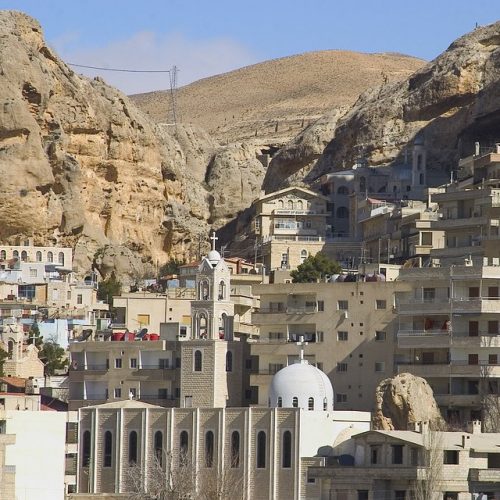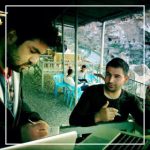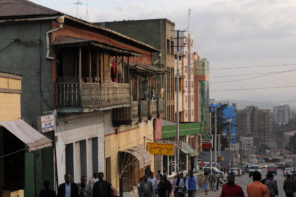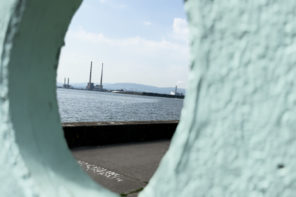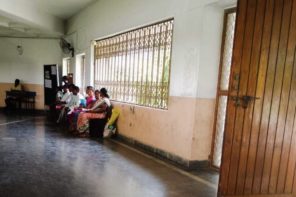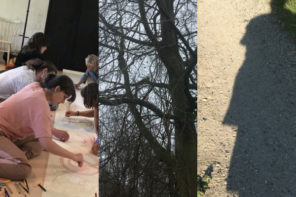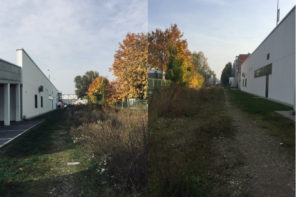The conference No Country for Anthropologists? Ethnographic Research in the Contemporary Middle East, which we co-organized and hosted at the University of Zurich in November 2018, addressed major concerns of all researchers working nowadays in this region. In many Arab countries the popular uprisings of 2011, with their reverberations across the entire region, were followed by an authoritarian backlash. As a result of this, research activities came under the increased scrutiny of politically repressive governments.
Political polarization and military conflicts in numerous countries created new obstacles to conducting ethnographic fieldwork. The tragic case of the Italian PhD-candidate Giulio Regeni, who was brutally murdered in Egypt in 2016, remains in everybody’s thoughts.
The issues at stake concern researchers working for universities situated both in the Middle East and elsewhere. Many face strong pressures to avoid sensitive topics and often almost insurmountable obstacles when it comes to obtaining research permits. In spite of these difficulties, the knowledge provided by ethnography, resulting from the immersion of researchers in different social contexts and a dialogic process of producing knowledge with local interlocutors, seems more needed than ever before. Ethnography opens up perspectives on the region that go beyond geopolitical speculations, statistical data, or decontextualized testimonies of the victims of repression and conflict.
The difficulties anthropologists face nowadays are hardly new, as Daniele Cantini recalled at the beginning of the conference, referring to Evans-Pritchard’s reluctance to undertake fieldwork in Arab countries given the constant risk of being perceived as a spy.[1] After Arab countries gained independence from direct colonial rule, the role of anthropologists became even more questionable in many places. In 1971, the Algerian government went as far as banishing the discipline, then labeled as a colonial relic, in favor of sociology as a tool for social engineering.[2] Furthermore, conflicts in the region in which Western powers were heavily involved fueled further defiance towards anthropologists from these countries. Nevertheless, there were also periods of opening. The 1990s and the 2000s were times in which it was relatively easy to do research in many Arab countries—most notably in Egypt, which became an important hub for anthropologists working on the region. The first two years following the Egyptian revolution, from 2011 to 2013, constituted a climax for many anthropologists in Egypt, offering unprecedented freedom to conduct research on sensitive issues such as poverty and political structures. Against this background, the backlash after the military seized power again in 2013 appears even more brutal. Since then, similar authoritarian tendencies have gained momentum in other countries of the region, as for instance in Turkey. Meanwhile, in Afghanistan, Iraq, Syria and Yemen, civil war has made fieldwork an almost impossible endeavor.
As a result, a number of academic discussions of fieldwork conditions in the Middle East have taken place in recent years. The conference No Country for Anthropologists? followed this trend. For three days, it gathered researchers working with ethnography from Switzerland, Belgium, Germany, the United Kingdom, Denmark, Sweden, Canada, the United States, Iran, Lebanon, Palestine, Pakistan and Turkey, offering a venue for lively discussions about the difficulties met while doing research in volatile contexts and the possible means to overcome them. A detailed report on the talks held at the conference has been published in the Bulletin of the Swiss Society for the Middle East and Islamic Cultures. Therefore, we do not intend to give a full account of these three days, but rather wish to share some of the reflections that resulted from our discussions during and after the conference. The diversity of the speakers—in terms of their institutional affiliations, seniority, objects of interest and theoretical orientations—allows us to articulate four core dilemmas for ethnographic work in the contemporary Middle East: What should we do when access to fieldwork locations becomes impossible? How can we maintain the autonomy of anthropology when facing the frequently stifling discourses on the Middle East dominating official politics and the media? How should we deal with physical threats on fieldwork sites? And lastly, how can we elaborate and cultivate a shared language with our interlocutors in the field?
Four Dilemmas for Ethnography in the Contemporary Middle East
A first dilemma we face is writing about countries or regions to which anthropologists have almost no access to anymore.
Getting barred from places and being forbidden to meet interlocutors is obviously a serious problem for anthropologists. Yet how can we continue documenting the situation of people living in countries to which we have no direct contact to anymore?
Marina de Regt recounted how she attempted to keep contact with her interlocutors in the besieged city of Al-Hodeida during the war in Yemen. Relying on networks and background knowledge accrued during previous research projects, she was able to record local testimonies of the ongoing violence and situate them in a wider context. The necessity of describing the Yemeni situation from the point of view of the inhabitants seems beyond question. This is precisely the context-based knowledge that ethnography is particularly good at producing. The problem at stake equally concerns researchers carrying the nationality of the countries they study, as Ratiba Hadj-Moussa explained with reference to Algeria, where the politically agitated regions in the south have become more and more difficult to access. As security apparatuses and surveillance started to constitute a danger both for herself and her interlocutors, Hadj-Moussa resorted to using the telephone, Skype, Youtube, and Facebook in order to keep contact with her interlocutors, obtain insights into the current situation, and keep her observations and reflections going. “Fieldwork in ruins does not imply the ruin of the field”, as she put it. At the same time, the sheer impossibility to conduct fieldwork in such a scenario raises questions touching on the core of our discipline. This led Hadj-Moussa to ask whether—in such cases—we should speak of “ethnographies in the process of disappearing.”
Indeed, how can researchers experience sufficient “implication”[3] if they conduct fieldwork at a distance? Here, we refer to the kind of implication that forces us to rethink our research questions and our categories of analysis in order to adjust ourselves to the preoccupations of our interlocutors and the issues they are concerned with in their lives. Missing immersion could easily make us disregard the social context of the data we gather and lose perspective on the issues that we are studying. This risk becomes even more acute the longer we are absent from the place of inquiry.
A second dilemma we face, is dealing with topics that are at the core of intense geopolitical gambles or of heated debates on the national scene.
How can anthropologists address the topics in question in a way that leaves enough autonomy for a distinctive anthropological take on a situation? In the current academic environment, researchers are under pressure to adjust their inquiry topics to policy objectives and to media debates. This problem is particularly striking when it comes to the Middle East, a region which easily elicits inflammatory debates in Europe.
Emanuel Schaeublin observed for instance that debates on Islamic charitable institutions in Palestine have come to be dominated by security concerns and allegations that they serve as conduits for “terrorist funding.” An ethnographic perspective on the issue makes it possible to situate the work of these institutions in people’s lived practice of Islamic giving and to show how pious generosity is part of everyday interactions between neighbors and relatives. Conducting research on Turkish mosques in Switzerland, Dominik Müller illustrated how Swiss media debates on the role of mosques in politically mobilizing Turks in the diaspora affected his relation to his interlocutors, and the vision they had of him as a non-Turkish researcher interested in their ways of practicing Islam. In Turkey itself, Leyla Neyzi, Hande Sarikuzu, Erol Saglam, and Mustafa Akcinar faced a variety of problems at different levels of the research process related to the suppressed role of minorities in the country’s narrative and the authoritarian turn of the government. As a result of political shifts, Shirin Zubair was compelled to leave Pakistan for some time and faced important career setbacks after attempting to teach gender theory in Lahore.
In such cases, the alternative either entails finding alternative venues for discussing the topic at stake from a different perspective or using these debates as a heuristic device to better understand certain situations and contexts. However, when the situation worsens and leads to violent confrontations, these ways of proceeding may not be a sufficient guarantee for the safety of researchers and of their interlocutors.
A third dilemma we face is how to behave in moments of intense polarization.
When conflicts turn violent, trying to keep oneself apart from the fighting is not always easy during fieldwork. Circulating back and forth between adversaries for research purposes often becomes impossible. Furthermore, when words become weapons, there is no place for a neutral stance and refusing to take a side can appear as treachery, cowardice or criminal indifference.[4] Appeals within anthropology for “engagement” do not necessarily solve the issue either. Which side should one choose, and on which basis? Further, what consequences does this decision have for the analysis?
While conducting research on the independence movement in South Yemen during 2014 and 2015, Anne-Linda Amira Augustin witnessed the political turmoil of a country on the verge of war. In this situation, she felt compelled to go “to those [she] could trust” and to join the political movement she was studying as an activist.[5] This example is significative in our eyes, as it shows how violent events compel us to rely on existing networks to insure our safety and how this influences our take on the conflict. As for Younes Saramifar, his research focuses on Shia militias fighting in different parts of the Middle East. He conducted research on them as an ethnographer embedded in their military structures, occasionally observing open fighting. However, as Aymon Kreil asked when discussing his paper, in face of the sheer brutality and confusion of war, trying to infuse the violence and chaos of combats with meaning can appear as a specific kind of misrepresentation, especially if taking side signifies granting a sense of value to war.
Such choices are not self-evident and should not be seen as such. Even cases in which deciding what side to take may seem easy at first sight due to the shared set of values between “liberal-minded” researchers and their interlocutors, can be intricate. With regard to Egypt for instance, both the Egyptian political scientist Rabab El-Mahdi and Egyptian political activist Philip Rizk denounced the misappraisals provoked by identifying the liberal youth as the main actor of politics following the 2011 uprising, a tendency to which many researches were prone due to the master narrative of liberal democracy expanding to the world in different waves and to personal affinities alike.[6] Further, as Nida Kirmani noted during her presentation at the conference Pillars of Rule: The Writ of Nation-States and Dynasties in South Asia and the Middle East, also held in Zurich a few months later, the meaning of political causes can differ according to national contexts: denunciations of Islamophobia, for instance, which belong to the progressive agenda in Trump’s United States, are part of the ethnonationalist discourse in Pakistan, pushing for Indian Muslims to join the country.[7] Thus, the question remains open of how to position ourselves politically and analytically with a view to narratives and themes that take on very different kinds of political significance in different contexts. This situation appears to erode the common ground needed for an ethical and realistic kind of engaged anthropology.
A fourth dilemma we face is the possibility to elaborate a common language with our interlocutors.
There are strong trends pushing for the development of collaborative anthropology, a way of doing inquiries in which our interlocutors, including local academic scholars and faculties, participate in all steps of the research process.[8] In her keynote address to the conference, Jessica Winegar emphasized the necessity of transcending the borders of the discipline by including a larger plurality of voices within it. In a similar vein, Shirin Naef argued for an anthropology dialoguing with debates going on within the Islamic tradition when studying bioethics in Iran, in line with recent arguments by Johan Rasanayagam.[9] These dialogues, which were mostly carried out with scholars of law, jurisprudence, theology and medicine, have largely shaped her sociological and anthropological enquiries and perspectives. However, as Naef reminded us, this endeavor also presents difficulties and challenges, such as misunderstandings and misrecognition, which are important to acknowledge in order to overcome them.
Emilie Lund Mortensen argues for instance that her encounter with the Jordanian secret police, and the fear this encounter induced in her, increased her ability to enter into dialogue with her interlocutors. Working with Syrian refugees who feel that they are under constant surveillance and move through the city as invisibly as possible, Lund Mortensen’s direct experience of the secret police created a space of shared knowledge with her interlocutors. Lamia Moghnieh explained that the vocabulary of trauma, which came to define the experience of war in Lebanon in the eyes of external observers and NGO personnel, obscures moments of resistance or practical assessments of situations which are at the core of what she terms as “living-in-violence.”[10] Her insight compels us to reconsider the meaning of empathy, which tends to focus solely on suffering.[11]
Understanding different sources of strength and resilience that our interlocutors tap into should equally be part of the endeavor. Moreover, the kind of intimacy necessary for collaboration can sometimes be difficult to bear psychologically, as Erol Saglam argued for the case of his fieldwork among Rumeyka-speakers in Northern Anatolia. Their language is a dialect of Greek but many of its speakers are strong supporters of chauvinistic trends of Turkish nationalism. Suspicion prevailed first towards him, as the practice of the local Greek dialect is stigmatized by its speakers themselves. Saglam’s problems during fieldwork remind of issues of “cultural intimacy” which anthropologists often face when trying to address topics about which their interlocutors reluctantly discuss with strangers.[12] In Saglam’s case, ethnography on the topic he chose meant to become intimate with people whose prospects about society were often diametrically opposite to his own. Eventually, leading back to the issue of polarization, Erol Saglam, Hande Sarikuzu and Anne-Linda Amira Augustin all raised the question of how to analytically deal with rumors relying on a violent othering of political adversaries which was shared by all their interlocutors and which made these stories credible in their eyes. Indeed, rumors help to learn about people in conflict and their “social imagination of violence,” as Sarikuzu phrased it, even if they are not a reliable source for corroborating factual evidence.
These difficulties highlight a core dimension of ethnographic research, the need to answer sometimes contradicting demands from university and from one’s own interlocutors. On one hand, we have to contribute through fieldwork to academic debates addressing questions in a jargon that is often far from the preoccupation and language of our interlocutors. On the other hand, once on site, we get entangled into networks of personal relations, which have other requisites, such as friendship or hospitality. This situation inevitably leads to “embarrassment,”[13] an uncomfortable position where researchers are torn between conflicting selves.[14] It is worth recalling that most of the time unethical or dangerous behavior by researchers arises from embarrassment. There is no plan B for failed fieldwork, as its success is one of the main elements on which anthropologists build their careers and by which they assess each other’s work. However, on a more positive note, embarrassment is also productive, as it is precisely what allows us to translate contexts and convey knowledge. How to maintain this tension throughout the dialogical process of ethnographic research in a way that does not do harm to any of the participants is perhaps the most important challenge.
Prospects for Anthropology in the Middle East
Bricolage is always part of ethnography and the neat research protocols in textbooks and research projects by definition never work as we are dealing with non-reproducible historical situations and not with laboratory experiments. This supposes a great deal of incertitude and the necessity of adapting methods to places and encounters.
The conference’s aim was not to provide ready-made solutions for ethnography in the Middle East. In any case, Jeffrey Sluka reminds us that “danger is not a purely ‘technical’ problem and is never totally manageable.”[15] Thus, David Shankland offered a rather grim portrayal of research prospects in the region. It seems that the willingness of British universities to deal with risky situations is diminishing, particularly when research involves undergraduate and graduate students working under the responsibility of their universities and their research supervisors. In response to pressures, Mehrdad Arabestani, who is based in Iran, emphasizes the possibility of “disidentification” from official discourses as a skill to conduct research, by which he means the strategical use of the ambivalence of official slogans and of the—occasionally contradictory—objectives set to researchers by state agencies. Nafay Choudhury explained how he tried to manage the deteriorating security conditions in Kabul by never announcing the times of his visits to the money exchangers who he was studying and by avoiding a regular and predictable rhythm of moving through the city in order to evade abduction attempts. Noah Arjomand on the other hand recounted howhe was mixing profiles of different interlocutors when writing about Turkish and Syrian media workers, in order to avoid endangering them by making them too easy to identify.
Despite all these issues, ethnographic implication in the field remains indispensable for our work. Indeed, we never met someone who learned a language with audio methods. At a certain moment, you need to be compelled to practice the language, you need to be unsettled in your speaking habits, you have to experience yourself as someone else, be it pleasant or not, as another person, who is also part of the fieldwork. The good thing about ethnography is that it is flexible. The problems it raises are often indicative of wider political shifts in the world. Researchers unfortunately need to adapt to the violence accompanying these transformations, while striving to create the best possible conditions for ethnography in spite of the odds. [16] Reflecting on the conditions of doing fieldwork enables researchers to go beyond their individual cases, and to make historical and geographical continuities (and discontinuities, of course) visible in the work of anthropology more generally. Particularly when we need to make unsettling choices, being able to articulate them among peers seems to be far from anecdotical, and rather close to how anthropological knowledge is made.
References
[1] Edward Evans-Pritchard, “Some Reminiscences and Reflections on Fieldwork,” Journal of the Anthropological Society of Oxford 4, no. 1 (1973). Suspicions that ethnographers could be spies are recurrent in research in Middle Eastern countries. This is only partly explained by political tensions. For a more detailed discussion of Evans-Pritchard’s reluctance to do ethnography in Arab countries, see Paul Dresch, “Wilderness of Mirrors: Truth and Vulnerability in Middle Eastern Fieldwork,” in Anthropologists in a Wider World: Essays on Field Research, ed. Paul Dresch, Wendy James, and David Parkin (Oxford; New York: Berghahn, 2000), 113-14.
[2] Mohamed Madoui, “Les sciences sociales en Algérie: Regards sur les usages de la sociologie,” Sociologies pratiques, no. 15 (2007); Kamel Chachoua, “La sociologie en Algérie: Histoire d’une discipline sans histoire,” in Les Sciences sociales en voyage: L’Afrique du Nord et le Moyen-Orient vus d’Europe, d’Amérique et de l’intérieur, ed. Eberhard Kienle (Paris: Karthala, 2010), 141-42.
[3] Michel Agier, “Ce qui rend les terrains sensibles… et l’anthropologie inquiète,” in Terrains sensibles: Expériences actuelles de l’anthropologie, ed. Florence Bouillon, Marion Fresia, and Virginie Tallio (Paris: EHESS, 2005), 178-80.
[4] Abderrahmane Moussaoui, “Du danger et du terrain en Algérie,” Ethnologie française 31, no. 1 (2001); Kimberly Theidon, “Terror’s Talk: Fieldwork and War,” Dialectical Anthropology 26, no. 1 (2001).
[5] See also Anne-Linda Amira Augustin, “Rumours, Fears and Solidarity in Fieldwork in Times of Political Turmoil on the Verge of War in Southern Yemen,” Contemporary Social Science 13, no. 3-4 (2018): 7-8.
[6] Rabab El-Mahdi, “Orientalising the Egyptian Uprising,” Jadaliyya (2011),; Philip Rizk, “2011 Is Not 1968: An Open Letter to an Onlooker on the Day of Rage,” Mada Masr (2014).
[7] On the same topic, see also Rochelle Terman, “Islamophobia, Feminism and the Politics of Critique,” Theory, Culture & Society 33, no. 2 (2015).
[8] For a possible framework that will help collaborative research between anthropologists in Iran, see for example Shahnaz R. Nadjmabadi, “Conceptualizing Iranian Anthropology: Past and Present Perspectives” (London: Berghahn Books, 2009). Nadjmabadi also provides us with a history of Iranian anthropology and its development to date.
[9] Drawing his inspiration from the philosophy of Emmanuel Levinas on the ethics of the Other, Rasanayagam argues for an anthropological knowledge founded on an ongoing conversation in a non-objectifying way with an Islamic tradition that observers should not endeavour to grasp as a whole. See, Johan Rasanayagam, “Anthropology in Conversation with an Islamic Tradition: Emmanuel Levinas and the Practice of Critique,” Journal of the Royal Anthropological Institute 24, no. 1 (2018).
[10] Lamia Moghnieh, “‘The Violence We Live In’: Reading and Experiencing Violence in the Field,” Contemporary Levant 2, no. 1 (2017).
[11] The concern with suffering arguably occupies a crucial position in recent anthropology and Western humanitarianism—on which, see Joel Robbins, “Beyond the Suffering Subject: Toward an Anthropology of the Good,” Journal of the Royal Anthropological Institute 19, no. 3 (2013), and Didier Fassin, Humanitarian Reason: A Moral History of the Present (Berkeley: University of California Press, 2011). At the same time, recent ethnography on practices of giving in Egypt document how Islamic discourse is able to sustain an ethics of giving and mutuality that ascribes more importance to justice and duty than to empathy with those who suffer—see Amira Mittermaier, Giving to God: Islamic Charity in Revolutionary Times (Berkeley: University of California Press, 2019).
[12] Michael Herzfeld, Cultural Intimacy: Social Poetics in the Nation-State (New York etc.: Routledge, 1997).
[13] Erving Goffman, “Embarrassment and Social Organization,” American Journal of Sociology 62, no. 3 (1956): 269-71.
[14] On the same topic, see also Christian Ghasarian, “Les désarrois de l’ethnographe,” L’Homme 37, no. 143 (1997): 192-93; Dionigi Albera, “Terrains minés,” Ethnologie française 31, no. 1 (2001). For an excellent ethnographic example of this tension, see Emilio Spadola, “Forgive Me Friend: Mohammed and Ibrahim,” Anthropological Quarterly 84, no. 3 (2011): 737–756.
[15] Jeffrey Sluka, “Participant Observation in Violent Contexts,” Human Organisation 49, no. 2 (1990): 124.
[16] Megan Steffen, “Doing Fieldwork after Henrietta Schmerler: On Sexual Violence and Blame in Anthropology,” American Anthropologist Website (2017).
Feature Image by Iyad (Courtesy of Pixabay)

